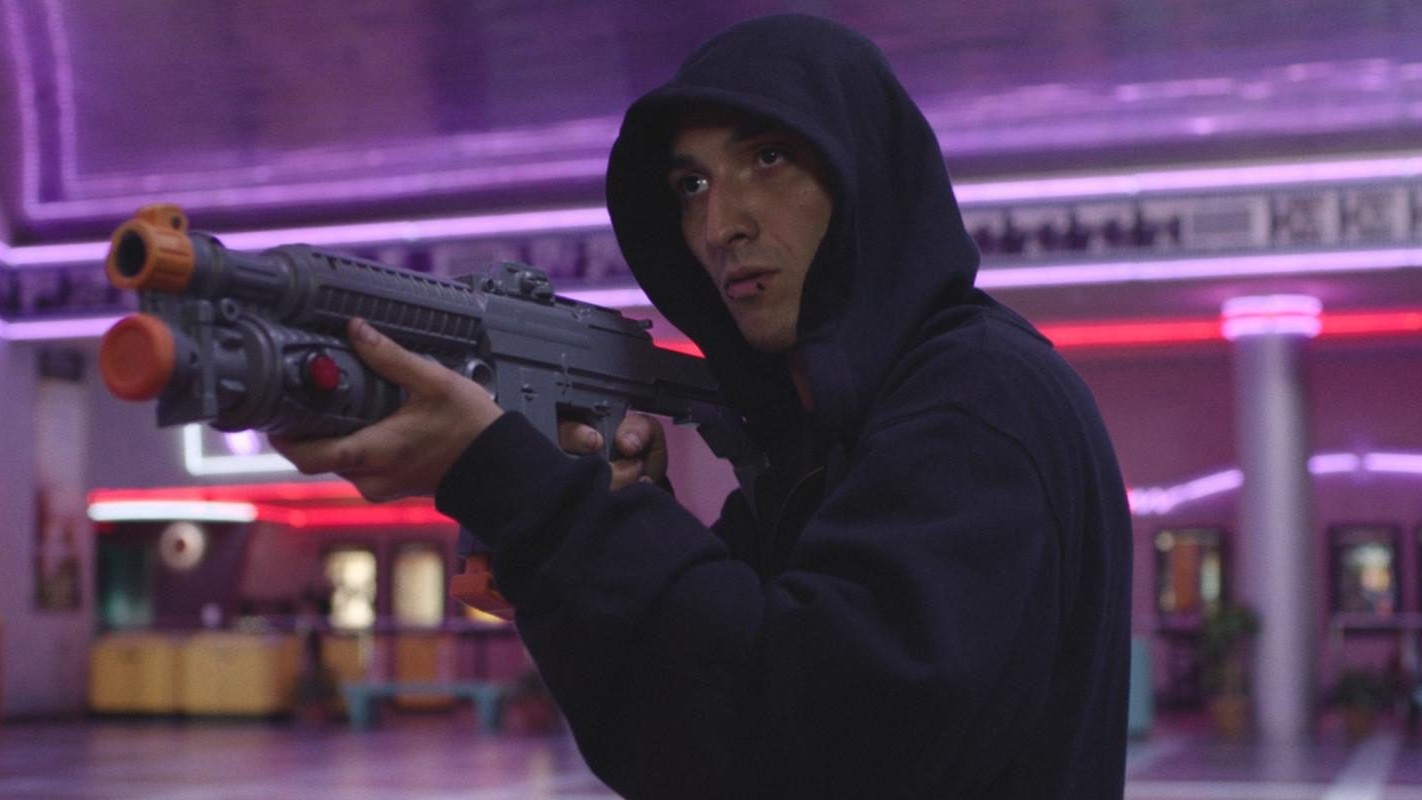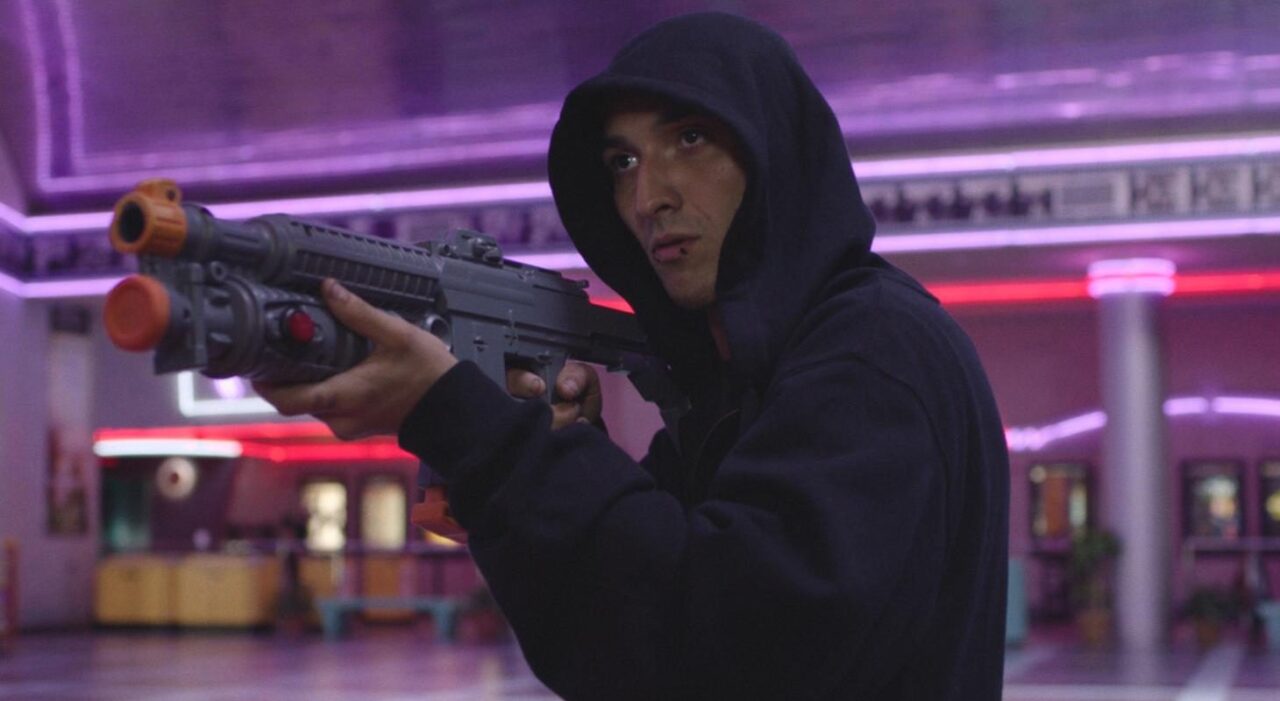This film was reviewed as first seen at this year’s AFI Fest presented by Audi.
Unfortunately, we all know the aftermath of first hearing about a mass shooting. In fact, most Americans would say they’ve come to know it too well. That pang of learning the horrors from the news, social media, or overhearing it in public is followed by the same footage of squad car lights and crying faces. What follows is the natural outpouring of grief and sadness that stays in the news and political discourse, before unfortunately, all but disappearing from the national conversation. Until the next incident occurs.
But what happens before the tragedy ensues? What happens on that very same day? Can we better understand the senseless act if we first see the fabric of the culture beforehand, captured in naive living, before the event? Writer and director Tim Sutton’s third film attempts to show exactly that. “Dark Night,” chronicling one full day of a mass-shooting from sunrise to sunset, is a meditative experience, creating an impressionistic account of what would be the day’s events before such a tragedy.
Loosely based on the Aurora theater shooting of 2012 (the film’s title refers in part to the movie that was playing during the event, Christopher Nolan’s Batman sequel, “The Dark Knight”), “Dark Night” follows six young Americans, capturing moments from each of their lives before weaving their stories together in the film’s climactic end. Taking place in the suburbs of Florida, we see a young skateboarder, a fitness obsessive, two teenage Latina friends, and a father with his toddler son.
We also see some of the other types of people to varying uncertainty: a young punk who dyes his hair orange (the same color the Aurora shooter’s) and a young male undoubtedly on the spectrum of sociopathic and who delivers nearly all of the film’s dialogue in a constructed interview-type setting. And finally, we follow the shooter himself, icy blue eyes seeing only the worst in things. All of these characters together form the whole picture of frustrated and isolated youth life.
It should be said now: For viewers that are hesitant to take to this film, you should know that there is no massacre to witness here. It’s pretty much the exact opposite of gruesome exploitation, telling the tale in chilling silence and observation. Sutton and his cinematographer Hélene Louvart (“Pina”), capture the suburban life in a ghost town way. Video games, Google Earth, and cell phones tell the story of the characters’ relationship to their environment, their reality.
Silent, slow-burning films like “Dark Night” highlight the emptiness and negative space of the story, which allows viewers to be sucked into it. Perhaps the closest connection to this meditative style is Gus Van Sant’s “Elephant,” which soberly captured the day of the Columbine shooting.
“Dark Night” is 85 minutes.
Ryan Rojas
Ryan is the editorial manager of Cinemacy, which he co-runs with his older sister, Morgan. Ryan is a member of the Hollywood Critics Association. Ryan's favorite films include 2001: A Space Odyssey, The Social Network, and The Master.


